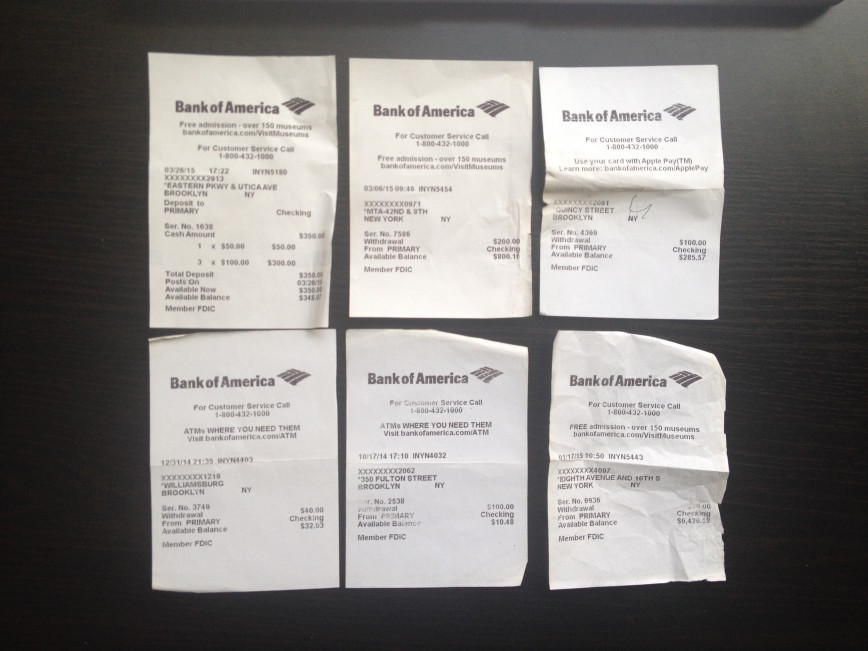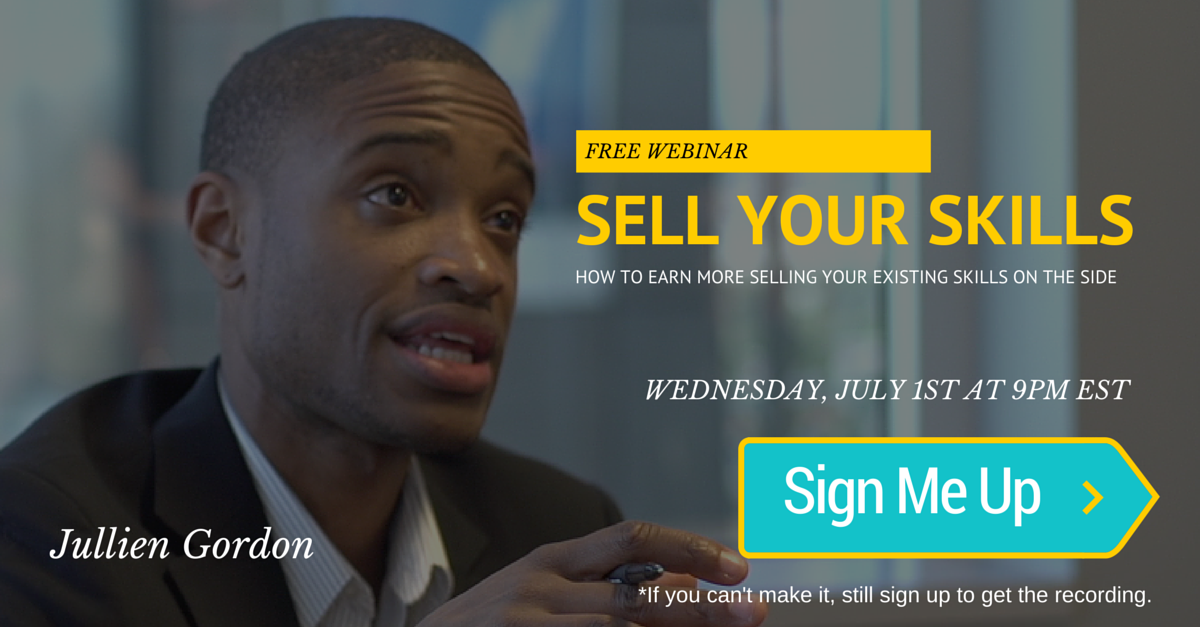I have a confession to make.
Over the past few years, I’ve developed a weird habit when going to the ATM.
I can only imagine what it looks like on the bank security cameras. I use the word “weird” because I doubt anyone else in the world does this.
Are you ready for it?
I collect other people’s deposit slips.
There…I said it.
Now let me explain why before you write me off as an identity thief.
I use the deposit slips I find as motivation.
Contrary to what you may be thinking, the ones that motivate me the most are not the ones with two commas.
The ones that I actually keep in my wallet are the ones where people withdraw more money than they have left in their account. For instance, this person withdrew $100 and only had $10.48 left.
This saddens me more than anything in the world because I know these people are worth more than they may even know they are.
My mission is to help people know their value so that they feel free to live their values and these deposit slips that I save in my wallet serve as reminders that I/we have more work to do.
I hope that none of you are in this situation. But even if you’re not, I think we all wrestle with our self-worth financially, socially, and emotionally.
Not knowing one’s self-worth is the reason:
- people stay in jobs they hate or have outgrown
- people don’t ask for the raise they know they deserve
- people stay in relationships that don’t reciprocate love
- people hide behind big brands—colleges and employers—instead of lead with theirs
- people are afraid to take risks and live the life they always imagined
I believe that knowing our true value is what allows us to live out our true values.
I want people to be free…to be who they are and do what they want to do. That’s how we complete our Life’s Work or our purpose. That’s how we experience the most happy hours.
Lately, I’ve been asking myself…
Who will have more happy hours in this world and who will have less? And how can I help them?
The answer I landed on wasn’t:
- The highest paid people
- The hardest working people or
- The smartest people
It will be the people who know their self-worth.
What’s so ironic about self-worth is that determining your self-worth requires you saying “No” to money.
We’re taught that the more money the merrier, but all money isn’t good money. I remember the first time I said “No” to money. A multi-billion dollar Fortune 500 company reached out to me to speak to their employees with a budget of $1,000. I have individual clients who pay me more than that. I know the value I bring to my clients and it is way more than that.
But we all have a price right?
Up In The Air: How Much Did They Pay You To Give Up On Your Dreams?”One of my favorite scenes from the movie Up In The Air is when corporate downsizer, Ryan Bingham, (played by George Clooney) asks a man he is in the process of firing “How much did they pay you to give up on your dreams?” Bingham: You know why kids love athletes? |
If someone asked you to hurt someone else (or do anything against your will) for $10 would you do it? How about for $100? How about $1,000? What about $10,000? $100,000? $1,000,000?
Anytime we compromise our values for money, it’s a sign that we don’t really know our worth. And we (myself included) do it often in subtle ways:
- We work long hours at jobs we don’t like and come home late, though we say we value family
- We buy from companies with bad labor practices, though we say we value human rights
- We work for companies that destroy the Earth, though we say we value the environment
Bills, student loans, rent, a mortgage, mouths to feed are all valid reasons why we make these tradeoffs. But every day, I seek to remove these contradictions in my life so that who I am aligns with what I do.
When we know our value and values, we know we always have a choice. We have a choice to leave that job or buy from somewhere else that’s less costly to its employees and the Earth even if it’s more expensive financially in the moment.
That’s the life and the world I imagine—driven by our values. I know it’s possible, but first we have to know how much we value our time.
We all know how much money is in our bank account, but nobody knows how much time is in their time account. Our time is the most valuable thing we have and when we put an actual price on it, it forces us to think differently about the choices we are making daily.
Nobody can pay you what you’re really worth. Your self-worth is always greater than your salary. That’s how employers make profit. For instance, in law firms, the firm bills the client at $500 per hour while they pay their lawyers $100 per hour. Or McDonald’s employees $6 per hour while it earns $30 per hour off of their labor.
Employees sell their time to their employer for wholesale prices like Costco, but they could earn more if they sold their time in smaller chunks on the side.
What you will find is that while your salary may sound decent, when you account for the fact that most of us work more than 40 hours per week and many of us don’t take vacation, you’ll see that you may not be earning as much as you thought.
Simply by working 9 hour per day on average rather than 8, you are giving your employer 5 extra weeks of unpaid labor.
There is really only one way to test out your true value and that is to sell your skills to another individual or organization outside the context of a job.
We can think we are more valuable and should be paid more all we want, but we can’t really know until we try to sell ourselves.
I’m not suggesting that you have to quit your job. I’m suggesting that you should attempt to sell your skills outside of your job on the side, just to see if you can. You don’t have to become an entrepreneur if you succeed. I just want you to know that you can sell yourself if you want to or have to.
When someone earns their first 4-figure check outside the context of a job or they earn 3-figures for an hour of work, even if it’s only once, something changes in them. They move with a different kind of confidence because they know they have options.
There is power and freedom in knowing that you always have a choice. You don’t feel like you “have to” do anything. Instead, you do what you want.
Wishing you more happy hours,
Jullien
P.S. I’ll close with one of my favorite poems of all-time by Langston Hughes called “Harlem” but more commonly known as “A Dream Deferred.”







